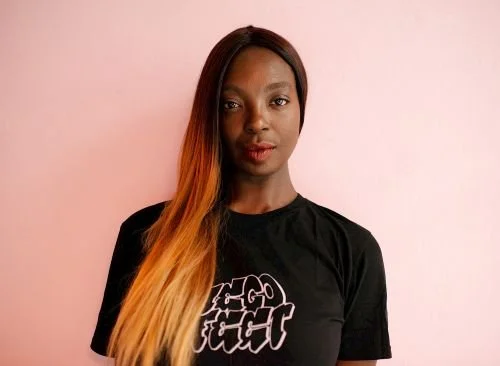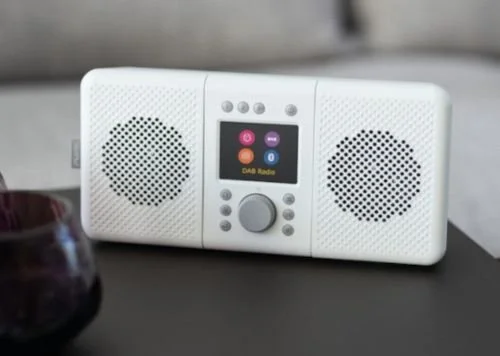FEATURE:
Digital Witnesses
PHOTO CREDIT: Good Housekeeping
The Importance of Three New BBC Radio DAB+ Additions
__________
I am going to start out with a feature…
IMAGE CREDIT: BBC
describing and expanding on a piece of news that I missed initially! It is hugely important. In terms of the way we listen to radio, I think habits are changing. Whilst many still listen through traditional and analogue radios, many are preferring the options and ease of a DAB radio. Although there is some contention and disagreement with the BBC expanding its radio empire and offering three new digital stations, I think that it is a good thing. Let us first come to Music Week and what they write about a development that will draw in new listeners and adds new station to a digital roster last updated back in 2002:
“The BBC is expanding its broadcast radio network with three new music stations – a move described as a “significant milestone” in the history of BBC Radio.
The three new station extensions from BBC Radio 1 and Radio 3 are the first to be added to the BBC’s music portfolio since 2002, when the BBC launched 6 Music, 1Xtra and Asian Network.
After launching on BBC Sounds as streams last year, they will now be available to listen to on DAB+ radio following Ofcom approval. The new brand extensions will continue to live on BBC Sounds, as well as on DAB+.
However, the new stations will not go down well with advertiser-funded commercial radio, which has consistently pushed back against BBC expansion. The commercial sector won a partial victory with the blocking of a proposed Radio 2 nostalgia station by Ofcom, which identified a negative impact on direct competitors such as Boom Radio.
While welcoming the decision on the Radio 2 spin-off last year, commercial radio trade body Radiocentre cast doubt on the distinctiveness of the three new stations and questioned their public service role as part of the licence fee-funded broadcaster.
“The fact that the other spin-offs will now go ahead is disappointing, especially given their lack of distinctiveness or news output,” said CEO Matt Payton. “We expect Ofcom to monitor these new BBC services closely and hope it will reconsider the case for insisting on enhanced public value on these stations in future.”
BBC brand extensions into online digital streams, such as its 24-hour BBC Radio 1 dance service, prompted calls for an Ofcom review of BBC Sounds in 2020.
BBC Radio 1 Dance launches on September 15 with a mix of new and archive sets from various DJs among its programming.
Radio 1 Anthems features songs from the 2000s and 2010s, including ‘workout anthems’ and Radio 1’s ‘chillout anthems’.
Aled Haydn-Jones, head of Radio 1, said: “I’m delighted to bring Radio 1 listeners not one, but two incredible new genre-led networks on DAB+. R1 Dance and R1 Anthems provide a strong and confident offer for younger listeners – delivering more choice and music to match every mood.
“Both stations bring together the very best expert DJs, rising presenting talent, exciting events and the best of British music for our audiences to discover. More than two decades since the launch of 1Xtra, this marks another exciting chapter in Radio 1’s history as the number one radio station for younger listeners.”
IN THIS PHOTO: Aled Haydn-Jones/PHOTO CREDIT: BBC
The new Radio 1 stations present a potential challenge to existing commercial operators including Kiss and Capital Dance, which has been a ratings success since its launch five years ago.
Meanwhile, Radio 3 Unwind aims – launching today (September 12) – aims to broaden the audience for classical music in the UK with a schedule designed for younger listeners (35-54) than other classical stations and is designed for a modern audience.
BBC Radio 3 Unwind features wellbeing content, combining classical music with mindfulness.
Sam Jackson, Radio 3 controller, said: “Radio 3 Unwind has already been positively received as a stream on BBC Sounds and I’m really pleased to now bring it to a wider audience on DAB+. The station offers a wide-ranging selection of calming classical music—perfect for listeners seeking an escape from the demands of daily life. It’s a fresh way to enjoy classical music, designed to be both welcoming and enriching.”
I’m really pleased to now bring Radio 3 Unwind to a wider audience on DAB+
Sam Jackson
When Music Week interviewed Radio 3 controller Sam Jackson last year, he stressed the distinctive nature of the BBC Sounds digital stream of Unwind – now upgraded to a DAB+ station.
“It has to be [distinctive], if it's from the BBC, it absolutely has to be,” he said last year. “That's our job to offer distinctive content that you can't get elsewhere, and we're working really hard to make sure that Radio 3 Unwind gives you exactly that. We really want to focus on recordings from the last 10 years or so to champion the recorded music industry. I think there's more that we could be doing to support labels and artists who are recording really exciting stuff within classical music. Because we're the BBC, we have an opportunity to really broaden the range of music that is heard. It would be all too easy simply to play the ‘hits’ on a station like this, to play the very well known classical repertoire. We're not here to do that.”
BBC ‘commitment to new music and British artists’
The BBC has said the new stations reinforce its “commitment to championing new music and supporting British artists”.
Radio 1 Dance showcases the BBC’s investment in dance music, reflecting all sub-genres, from chart hits to house and drum & bass. The schedule reflects the full range of electronic music and dance trends across the UK and globally.
British artists make up a third of Radio 1 Anthems’ airplay, with a quarter of the tracks unlikely to get regular play on key commercial stations.
The new extension plays a broader range of music than any comparable station, according to the BBC, with a music policy developed by collaborating with the Student Radio Association and designed to resonate with younger listeners.
Radio 3 Unwind broadcasts exclusive recordings from the BBC’s own orchestras and choirs. Living composers feature throughout the schedule, with a particular focus on both established and emerging homegrown British talent.
The station also reflects under-represented composers, including women and ethnically diverse composers. The dedicated new music programme Soundwaves, presented by Afrodeutsche, provides a platform for contemporary voices including BBC Introducing artists.
Digital listening habits
The BBC’s decision to launch three stations on DAB+ underscores the evolution of the audio landscape over the past decades, with 75% of the population now listening to the radio digitally (DAB/DAB+ and online).
It also marks the first DAB+ music stations launched by the BBC. Existing networks use the older DAB technology, though recent digital radios should be able to access both.
The BBC cited research showing that music streaming dominates among under-35s, who spend just 27% of their audio time with live radio compared to 49% with streaming services.
Despite this shift, radio still reaches 13.6 million under-35s each week and remains a key source of music discovery across all age groups.
The rise of new stations on DAB/DAB+ reflects where the majority of live radio listening is projected to take place by 2030.
DAB/DAB+ covers 97% of the UK population and 87% of major roads. It is also available in 100% of all new cars. 68% of households claim to have a DAB/DAB+ radio”.
IN THIS PHOTO: Afrodeutsche presents Soundwaves on BBC Radio 3 Unwind/PHOTO CREDIT: Kasia Zacharko
These new stations are important for so many reasons. For one, this is a reaction to changing trends. How people are listening to radio now. I don’t think that it is an attack on commercial radio. The BBC is allowed to expand and offer choices. To reach new audiences. Commercial radio will still exist but, at a time when we want to focus more on the content and people have less patience for commercials and any interruptions, we need to accept the fact that this is not going to disappear. I avoid commercial radio for that very reason. I know these stations need this advertising revenue but, when you are bombarded by cheesy and grating commercials between every few songs, it can be hugely off-putting. I do not want to listen to them so, every so often, you have to turn the volume down and wait for them to finish! Instead, with the BBC, you get more time dedicated to actual music and content. This is what people tune in for. However, I can appreciate that stations like Boom Radio are hugely important. Appealing to older listeners, their voice and opinions are hugely valid. They need a station that speaks to them. It is difficult. I don’t think the BBC should have its own equivalent, as that would take market share and focus from Boom Radio. However, these three new digital stations are going to easily and naturally fit into the BBC radio portfolio. Sitting alongside BBC Radio 3, BBC Radio 1 and BBC Radio 1 Xtra, I think it will attract more people to digital radio. There is also a progressiveness as well. BBC Radio 3 Unwind is a station I am especially looking forward to. I have been trying to listen to BBC Radio 3 more as I love Classical music and a lot of contemporary composers.
IMAGE CREDIT: Boom Radio
I am a huge BBC Radio 6 Music fan so find myself listening more to that. However, as BBC Radio 3 Unwind also shines a light on under-represented composers - and an overdue acknowledgement of women in that arena -, then I think I will spend some time with it. The Anthems stations is going to be great. A blast of nostalgia but also some chillout anthems, it is going to provide respite and uplift for listeners! The stations also provide a platform for new music and artists. Perhaps they would struggle to feature on other BBC stations, so this is a positive move towards including more new artists. I love BBC Radio 3 Unwind and Cinematic Soundtracks. That sounds right up my street! There are so many fascinating shows and presenters. A chance to chill and unwind. Some incredible anthems. This great chance for digital radio to welcome these exciting BBC stations. I guess the flip side is that it maybe damage some commercial stations or take attention from them. And local radio. Local radio is declining and that is a sad thing to see. We need to recognise their importance and place. Stations that maybe struggle to grow and exist and need as big an audience as possible. I do sympathise. However, it is good that the BBC I reacting to future predictions. That digital radio is going to grow and listening habits are changing. There is a lot to look forward to. BBC Radio 1 Dance will tempt more teenagers to digital radio. Giving them choice that they might not otherwise have had. There was a lot of interest when BBC Radio 6 Music launched in 2002. Rather than them having rivals and worrying, they have stablemates. It is going to be a big week next week when we get these new stations all open for business together. Radio 3 Unwind launched on Thursday. Going forward, we will see those who otherwise would spend time streaming music go to digital radio. I think this is positive. In terms of the benefits. It is a new venture but one which will provide much more good than bad. A lot of listeners who might have felt unheard or struggle to find their place now have a home. Radio programmes that are beneficial for mental and physical health. Educational, progressive and escapist, it is what we all need! For that reason alone, this trio of BBC Radio DAB+ stations should be welcomed…
WITH open arms.






